Nature-based courses
Would you like to learn more about identifying and classifying organisms? Take a look at the course providers below - there are courses that can lead to a professional qualification and those which are purely for pleasure and interest. Some of the courses are suitable for children and families too.
The Linnean Society cannot accept responsibility for the content, quality or suitability of these courses.
Course Providers
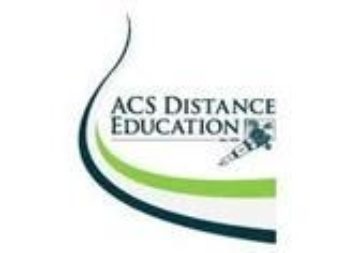
ACS Distance Education Ltd
ACS run a huge variety of courses relating to agriculture, horticulture and general science. Many of these courses include an aspect of taxonomy or identification, particularly Botany I - Plant Physiology and Taxonomy and the Advanced Certificate in Animal Science.
ACS Distance Education Ltd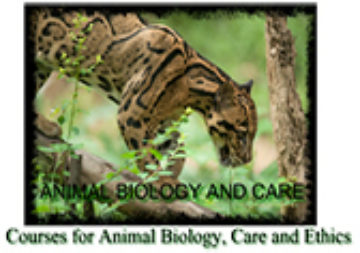
Animal Biology and Care
Courses from Animal Biology and Care are written and assessed according to the standards expected by Ofqual. Animal Biology and Care uses tutors that are specialists in the subject areas and, are qualified teachers and lecturers. All have extensive experience and practice of course management, practical application of the subject areas and, working to high educational standards. As such, assessment of work is a match to the course level and students receive and honest, realistic idea of achievement. As well as providing alternative paths to learning, Animal Biology and Care promotes the better treatment of non-human animals and in many courses, there is a strong ethical approach to animal care.
Animal Biology & Care
Ashmolean Natural History Society of Oxfordshire
The Ashmolean Natural History Society of Oxfordshire (ANHSO) has an Education Group which runs rigorous plant identification courses, using Clive Stace’s New Flora of the British Isles as its principal text. Each year there is a basic course which can be tackled by absolute beginners and also several continuation courses.
Ashmolean Natural History Society of Oxfordshire
Bournemouth University
BU’s School of Applied Sciences has considerable expertise in the areas of Archaeology, Conservation Ecology and Environmental Sciences, and Forensic and Biological Sciences. Our courses include degrees in Biological Sciences, Applied Geography, Ecology and Wildlife Conservation and Environmental Sciences. We also offer short courses for environmental professionals in areas such as Forensic Entomology, Marine Taxonomy, GIS for environmental managers and Statistics in R. The Marine Taxonomy and Habitat Survey 4-day course is aimed at both introducing and developing knowledge of coastal marine and maritime habitats, specific identification skills and intertidal habit survey methods that support marine biodiversity conservation, monitoring and research. Students will take advantage of the varied coastal habitats of the Jurassic Coast World Heritage Site and Poole Harbour.
Bournemouth University Applied Sciences
Chartered Institute of Ecology and Environmental Management
CIEEM is the leading professional membership body representing and supporting ecologists and environmental managers in the UK and abroad. Courses cover flora and fauna, including identification of non-native species, insects, mammals, lichens, fungi and bryophytes.
CIEEM Training & Events
Compass Education
Compass Education is considered a global leader in animal education, and students from over 37 countries study with Compass every year. Many of the courses on offer cover aspects of taxonomy and classification, notably the Introduction to Zoology, Wolf Studies, Primatology, Big Cat Studies, Entomology, Avian Studies and Marine Zoology diplomas. The courses at Compass are accredited by numerous organisations, including ZSL, EADL and Lantra Awards.
Compass Education
Field Studies Council
Courses for environmental professionals and those interested in the natural world. Topics include birds and other animals, flowers and other plants, and habitats and conservation. Training for teachers and fieldwork opportunities for groups of all ages from schools and colleges. For individuals and families, specific courses on animals, plants, habitats, conservation and even nature photography. Choose from a national network of UK centres in stunning locations.
Field Studies Council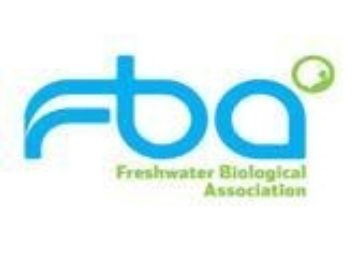
Freshwater Biological Association
The FBA offers a range of courses specially developed for enthusiasts and professionals, including identifying freshwater invertebrates such as aquatic beetles, chironomid larvae, caddis and subterranean fauna as well as invertebrate identification for biotic assessment.
Freshwater Biological Association Events
Imperial College London
MSc in Taxonomy and Biodiversity - taught course based mainly at the Natural History Museum.Students have the opportunity to specialise in their chosen subject during an independent four-month research project, based either at the Museum or the Silwood Park Campus. They may choose to undertake fieldwork carrying out biodiversity surveys, to work in the molecular laboratories, or to use the Natural History Museum’s world-renowned collection of natural history specimens. The unique location of this course enables students to attend regular seminars given by top researchers and to have important networking opportunities for future PhDs and careers.
Imperial College London Life Sciences
The Mammal Society
The Mammal Society training courses are for everyone, from interested individuals, to conservationists and ecological consultants, who want to develop their knowledge, field skills and experience for personal interest or professional development. From species introduction courses, to practical fieldcraft weekends, mammal identification and survey techniques, there is a focus on ecology & biology, law, technical skills, handling & surveying. They can also arrange bespoke courses for groups.
The Mammal Society Training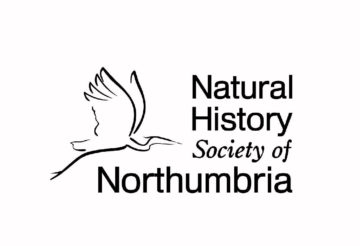
The Natural History Society of Northumbria
The Natural History Society of Northumbria provides education courses for those passionate about natural history, delivered by regional experts. Topics include ornithology, botany, geology and wildlife photography. Short courses and workshops covering myriad topics, including botanical art, ecology and biological recording. Open to NHSN members. Courses run at the Great North Museum: Hancock and across North East England.
Natural History Society of Northumbria Education Courses
Newcastle University
Newcastle University runs a popular Distance Learning Course in Marine Biology: Delve Deeper. Open to all interested learners aged 18+, the course is aimed at enthusiasts with no formal training in science or marine biology. Learning is done over a 6 month period through online materials and a practical field based week long course in May. The next course will start in March 2015.
Newcastle University - Marine Biology: Delve Deeper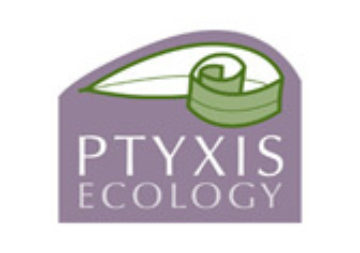
Ptyxis Ecology
Ptyxis Ecology run a range of CPD courses primarily aimed at conservation and ecology professionals. Most of the courses are also of interest to amateur natural historians. These course include: botanical ID (particularly of difficult groups such as grasses and mosses); survey methodology (e.g. Phase 1 Habitat survey and NVC) and Wildlife Law. The courses are all delivered by ecologists who are also professionally trained teachers. Several distance learning courses are offered for those who want support with developing their ID skills further.
Ptyxis Ecology Courses
Royal Botanic Gardens Edinburgh
Weekly classes and weekend workshops on lichens, wildflowers, fungi, mosses, ferns and trees. Undergraduate and postgraduate courses including MSc in Biodiversity and Taxonomy of Plants. Certificate in Field Botany - 8 day intensive course.
Royal Botanic Gardens Edinburgh Education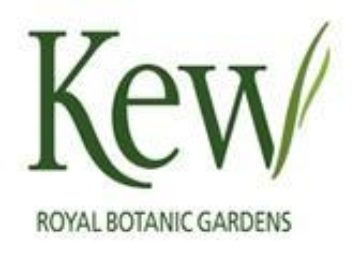
Royal Botanic Gardens Kew
The Royal Botanic Gardens, Kew offers various short specialist training courses covering topics related to botany and plant conservation, ranging from plant nomenclature to vegetation survey. Longer International Diploma courses provide opportunities for continuing professional development for mid-career horticulturists and educators, while the three year Kew Diploma in Horticulture course is designed specifically for horticulture students with an interest in botanic gardens.
Kew Gardens
RSPB
The RSPB runs many events for all ages, helping the public to gain a better understanding of the conservation issues that exist in the UK, while participating in sociable, enjoyable and, almost always, family friendly events.
RSPB Events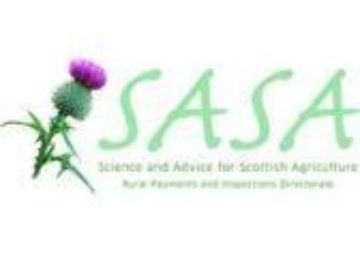
Science and Advice for Scottish Agriculture
Science and Advice for Scottish Agriculture (SASA) is a Division of the Scottish Government Agriculture, Food and Rural Communities Directorate. Their primary role is to provide scientific services and advice in support of Scotland's agriculture and wider environment. Much of their work is in support of arable agriculture and as such they provide practical training particularly in the recognition of cereal, vegetable and potato varieties and the visual diagnosis of the effects of their major pests and diseases
SASA Training Courses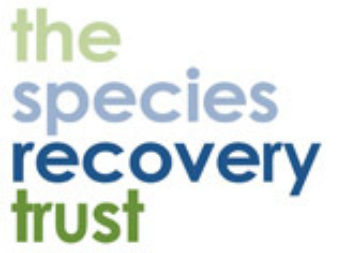
The Species Recovery Trust
The Species Recovery Trust runs a series of acclaimed one and two day training courses teaching a range of skills throughout the year and across the country. Topics include the identification of grasses, sedges, lichens, wildflowers, native trees, bumblebees, fungi and mosses. There are also courses on assessing trees for bats and using indicator species for habitat assessment.
The Species Recovery Trust
University of Leicester Botanic Garden
Botany for Beginners: This part-time course comprising ten full-day sessions will help you become more familiar with at least 100 local wild plants. Each module focuses on a different group of plants; we show you how to identify them, using classroom-based tuition sessions, follow-up fieldtrips to local sites, and resources like herbaria and websites. We aim to increase your appreciation and understanding of the plant diversity of Leicestershire & Rutland. Plant Identification: This part-time course, which comprises two modules taught over a full academic year, is intended for people who would like to develop or improve their plant identification skills, in the company of a group of friendly, like-minded people. Through a combination of lectures, laboratory classes and field excursions to places like the Norfolk coast and the Derbyshire Dales, we teach you how to identify the wild plants found across Britain.
University of Leicester Botanical Gardens
University of Oxford
The University of Oxford offers courses aimed at professionals seeking skills and training in the field of environment and sustainability, as well as those looking to improve their general understanding or wishing to build upon and enhance specific knowledge and experience. 5-week online short-courses are available in Ecological Survey Techniques across a range of taxa including mammals, reptiles, vegetation and birds. There is also a popular short-course in Data Analysis in Ecology providing training in the use of QED Statistics and R. A series of one and two-day courses in Environmental Management are held at the University of Oxford on key topics such as GIS as a Tool for Environmental Management, Evidence Based Conservation, International Climate Change Law and Policy, and Woodland Ecology and Management.
University of Oxford Environmental Courses
University of Reading
The MSc in Plant Diversity addresses the broad area of Plant Biodiversity and Systematics, which is both socially and scientifically important to the modern world. The MSc in Species Identification and Survey Skills is designed to offer students a stepping stone into Ecological Consultancy. The Centre for Plant Diversity and Systematics in the School of Biological Sciences is one of the foremost research groups worldwide in plant taxonomy and plant biodiversity. The group has a long and successful tradition of training MSc and PhD students, many of whom are now prominent members of the plant science profession. The MSc teaching is led by research active staff who are engaged in a range of scientific projects in the UK and around the world. Training in the identification of land plants using reproductive and vegetative features along with principles of classification, vegetation survey techniques and project management are offered as either full or part time options in these 180 credit MSc courses. This training involves fieldwork enhanced with lab and herbarium based training in identification.
University of Reading Biology Courses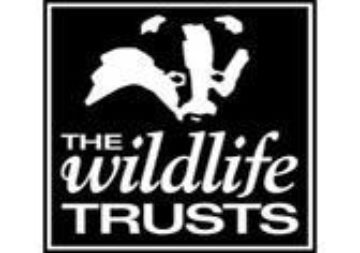
The Wildlife Trusts
The Wildlife Trusts training workshops on topics including butterflies, orchids, wildflowers and grasses, aquatic plants, beetles, bats, birds and small mammals are run throughout the year. There are also a range of specialist children's events.
Wildlife Trusts Events